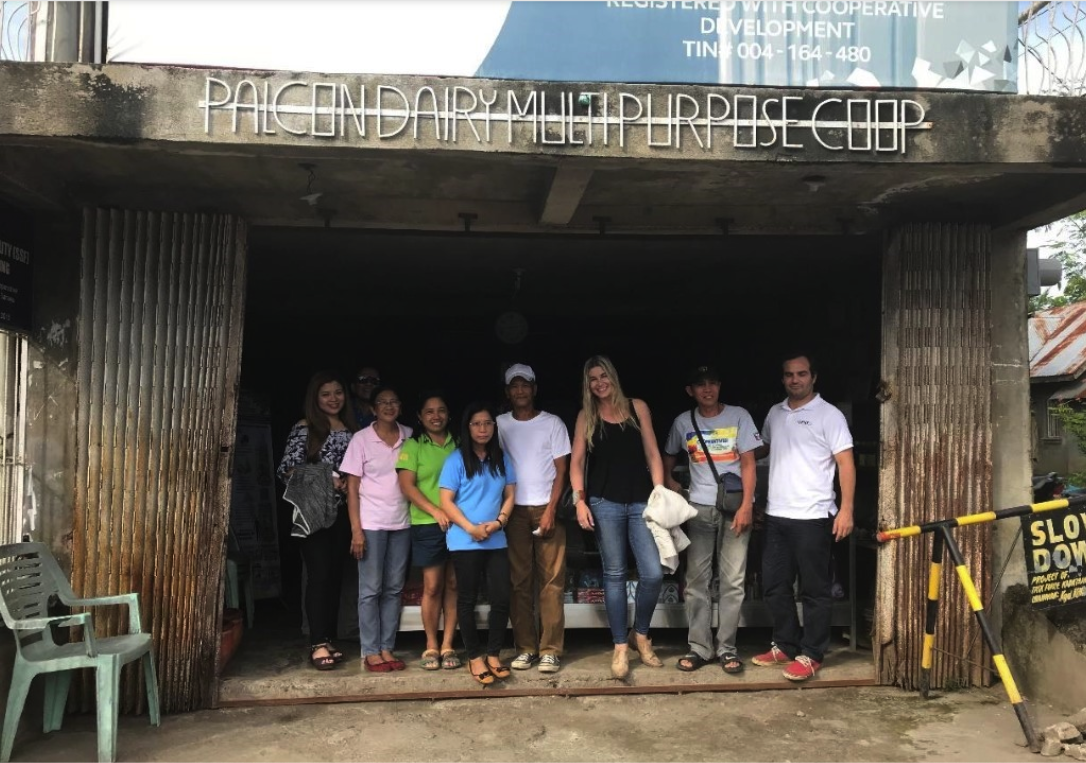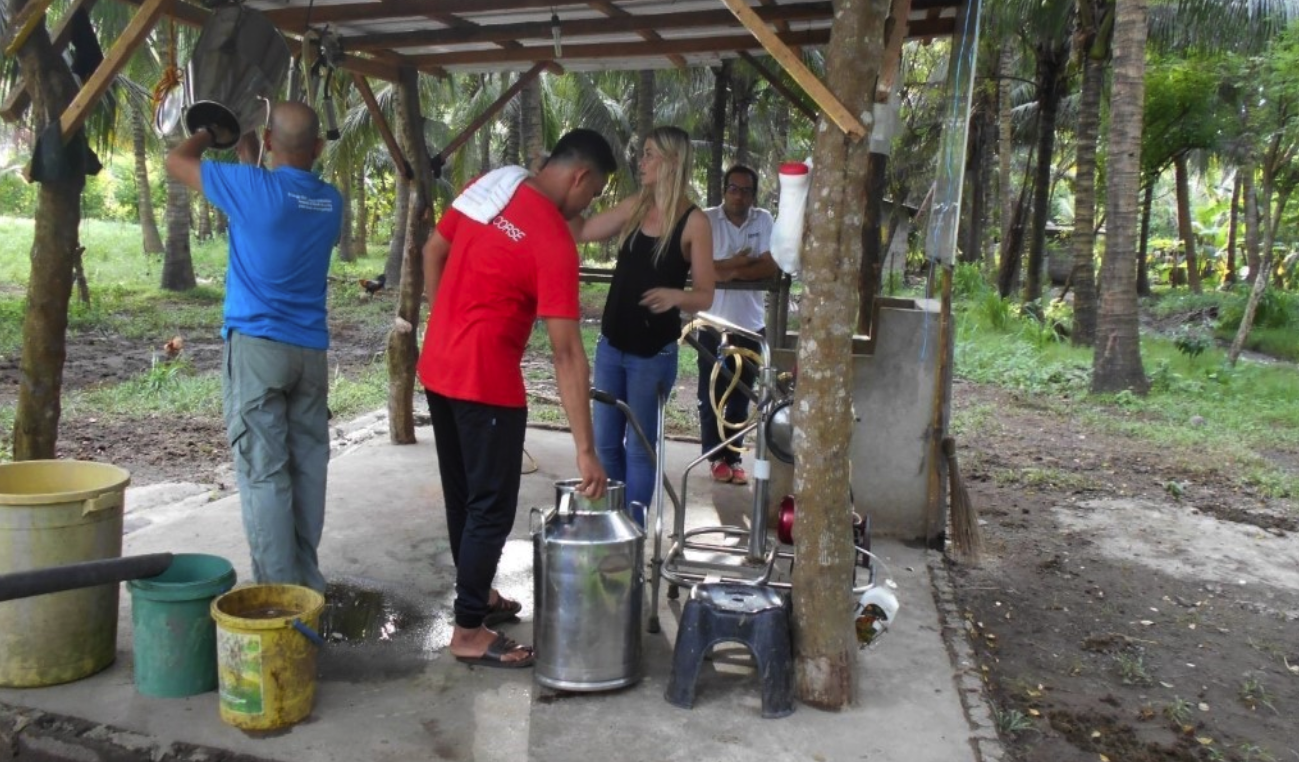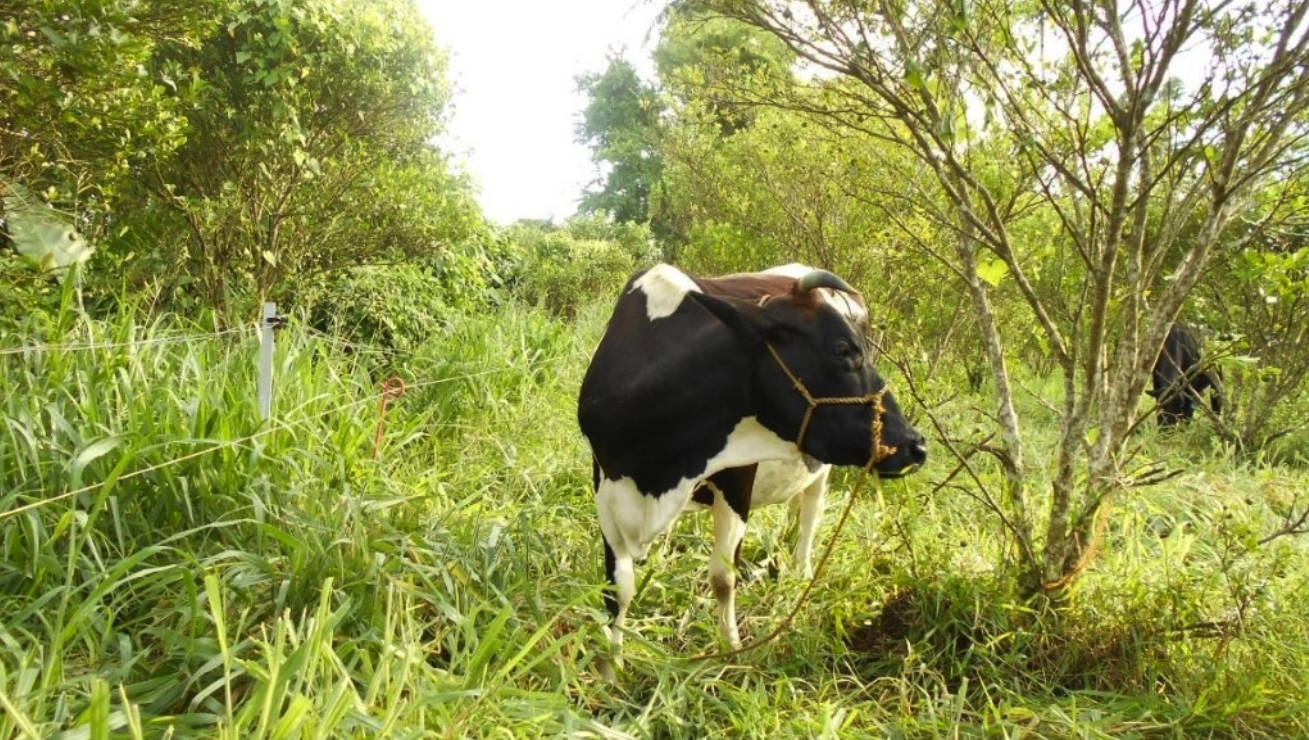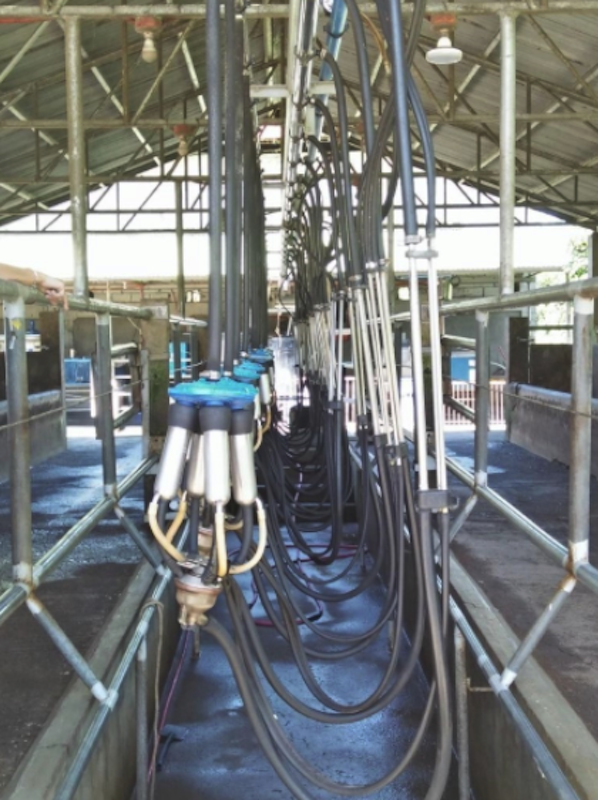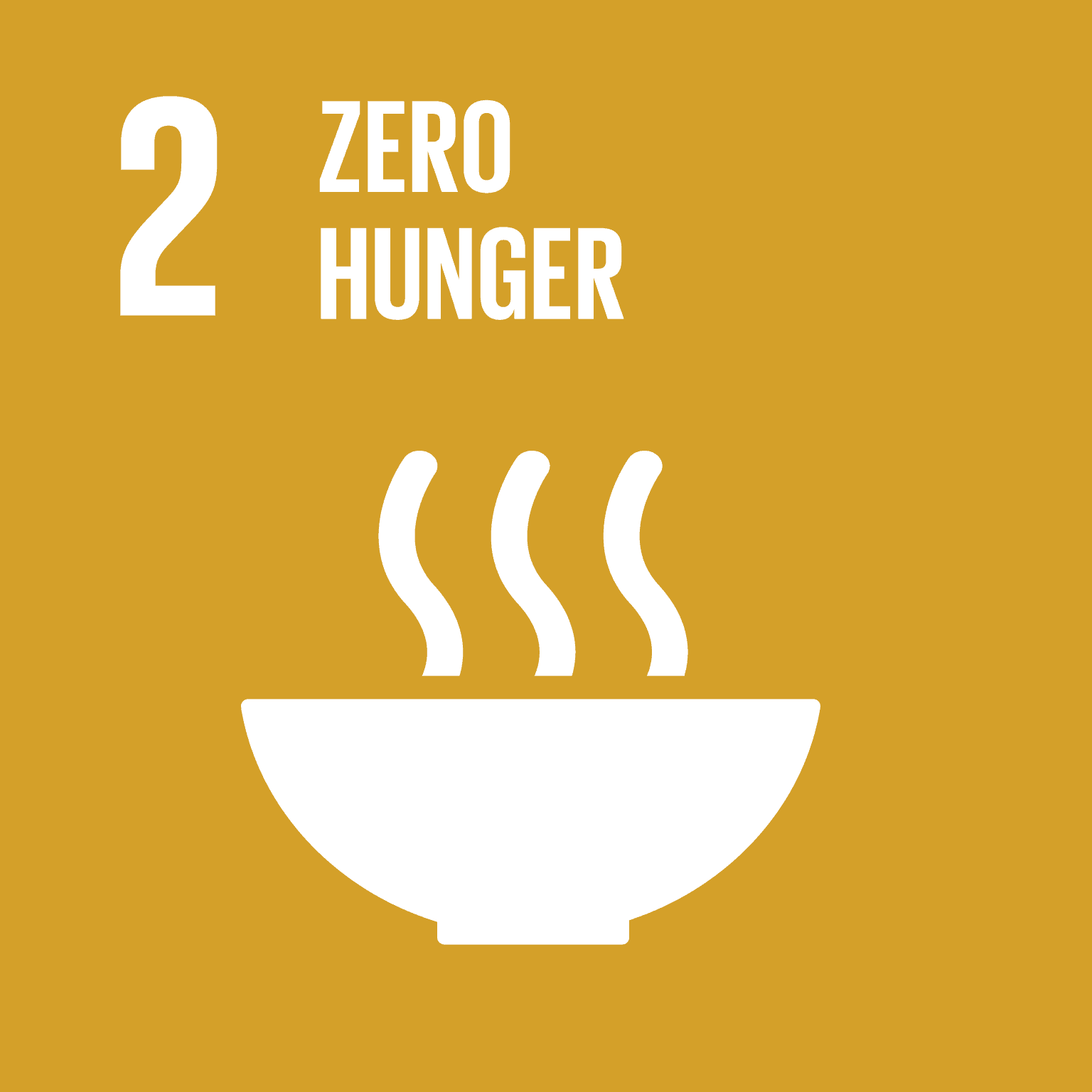 Addressing the Philippine Dairy Sector Challenges
Exchanging knowledge between Argentina and the Philippines to improve Philippine local dairy production
Addressing the Philippine Dairy Sector Challenges
Exchanging knowledge between Argentina and the Philippines to improve Philippine local dairy production

Challenges
The dairy sector in the Philippines has been recently established and is not yet sufficiently developed. Most of the producers are small-scale, with five to ten cows in their herds, working on farms that are usually not more than three hectares. The collection, processing and redistribution of production are carried out by cooperatives. The main challenges that the sector faces are water scarcity, poor mechanization, low reproductive efficiency, low forage production and lack of records that would help track the evolution of the dairy farms’ production. As a result, the total production can only support 1.8 per cent of domestic consumption and therefore the rest must be imported.
Towards a Solution
The project aims to address the various challenges facing the dairy sector in the Philippines, providing innovative solutions based on the experience and technical knowledge achieved by Argentina, and adapted to the local context, and the needs and interests of Filipino producers, based on a participatory approach. With the goal to end hunger and achieve food security for the Filipino population while promoting sustainable practices among local dairy farmers, it contributes to the achievement of Sustainable Development Goal (SDG) 2. The project also makes progress towards the fulfilment of SDG 8, since it promotes productive employment and decent work for the Philippines population, providing the dairy sector technical solutions to address its challenges and increase production.
The National Directorate of Dairy, Ministry of Agriculture, Livestock and Fisheries of Argentina, and the National Dairy Authority of the Philippines worked together to design the project and applied Bayanihan, a concept in Filipino culture that refers to the spirit of communal unity, work and cooperation to achieve a particular objective. The Bayanihan spirit reflects the values of the Filipinos to help each other, especially in times of adversity and without expecting anything in return. This socio-cultural characteristic turned out to be a valuable feature to replicate in future projects in Argentina and the region, where there is usually a weak spirit of association in the agricultural and livestock sector.
The project adopted the methodology of group work to generate changes in management practices and knowledge and technology transfer. This methodology is widely used in Argentina through the Rural Change programme and constitutes a successful public policy that, through the advice and technical support of extension agents, enables both producers and cooperatives to improve their productive indicators and their management capacity, and achieve scale and competitiveness from associativism.
Groups of around ten producers each were formed, coordinated by an agent of the National Dairy Authority who received training in group work methodology. Working in groups facilitates extension tasks and is very important for the transmission of knowledge, making a more efficient use of technicians' time and available resources. The local dairy farmers and members of the processing cooperatives, together with the National Dairy Authority (NDA) agents, participated in training activities on livestock feeding, reproductive management and milk quality, as well as data collection and uploading in the online database. In total, seven groups of dairy producers from four Philippine provinces were formed and strengthened, and 26 NDA technicians were trained in order to generate changes in the management and transfer practices of technologies applicable to the dairy sector.
One of the main expected outcomes of this initiative is the creation of an online database that will provide objective and accessible information on the evolution of production by cooperatives and producers. This will make it possible to evaluate, monitor and design projects and public policies specific to the sector. Hence, this constitutes a concrete solution to the lack of reliable information presented by the dairy sector in the Philippines.
The training of the NDA technicians is of particular importance in terms of the sustainability of the project, since the existence of a territorially distributed technical team guarantees the continuity of the extension activities once the project is completed, based on the capacities installed in the framework of this cooperation initiative.
Moreover, the group work methodology used can be applied to a variety of topics and productions in the agricultural and agri-food sector, and is replicable in different contexts and countries. For its implementation, the only necessary condition is the existence of a local institution with a territorial presence that carries out extension work. Arabic
Also available in: Arabic | Chinese | French | Portuguese | Russian | Spanish
Contact Information
Countries involved
Supported by
Implementing Entities
Project Status
Project Period
Primary SDG
Secondary SDGs
Similar Solutions
| NAME OF SOLUTION | Countries | SDG | Project Status | |
|---|---|---|---|---|
A Billion Brains: Smarter Children, Healthier Economies High Level Meeting on South-South Cooperation for Child Rights |
Argentina, Philippines | 17 - Partnerships for the Goals | Completed | View Details |
Accelerating Digital Transformation in All Ministries in Bangladesh Promoting the rapid design and implementation of plans to digitize all ministries and subordinate government institutions in Bangladesh |
Argentina, Philippines | 10 - Reduced Inequalities | Ongoing | View Details |
Accelerator Labs Network Following collective intelligence methods to address emerging sustainability challenges and the growing demand for local solutions |
Argentina, Philippines | 08 - Decent Work and Economic Growth 13 - Climate Action | Ongoing | View Details |
Accessibility of Financial Services and the Private Sector in Africa Maximizing the impact of financial cooperation on economic development and industrialization in Africa |
Argentina, Philippines | 08 - Decent Work and Economic Growth | Completed | View Details |
Accessibility ToolKit Promoting accessibility as a cornerstone for inclusive digital development in Bangladesh. |
Argentina, Philippines | 08 - Decent Work and Economic Growth | Completed | View Details |
